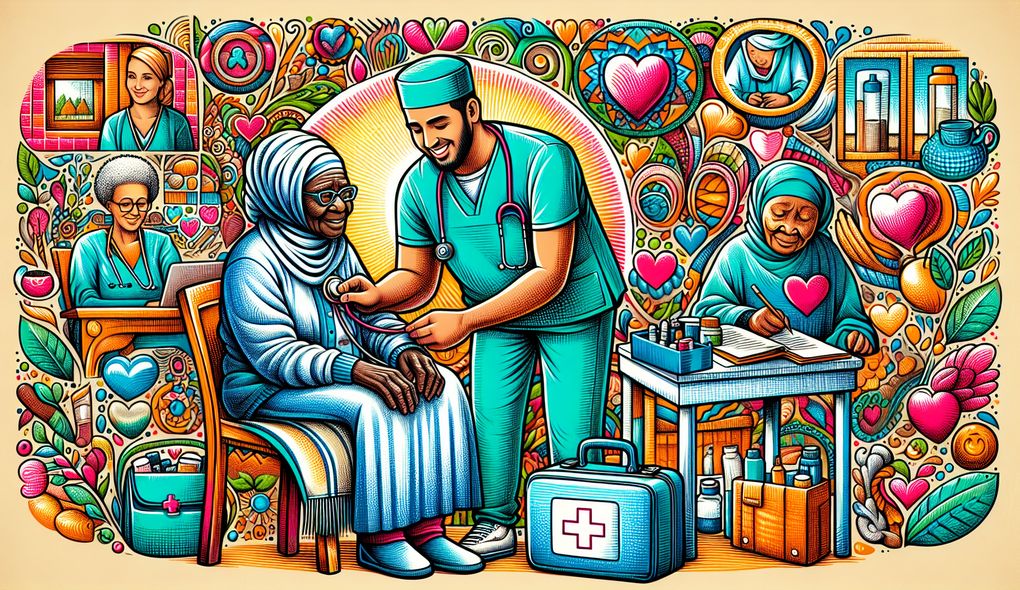How do you ensure patient confidentiality and privacy in your practice?
JUNIOR LEVEL

Sample answer to the question:
In my practice, ensuring patient confidentiality and privacy is a top priority. I strictly adhere to HIPAA regulations and maintain the confidentiality of patient information. I limit access to patient records to authorized personnel only and ensure that electronic health records are protected with secure passwords. I also take precautions to protect patient information when communicating electronically, such as using encrypted emails. Additionally, I always obtain informed consent from patients before disclosing any information to other healthcare professionals or organizations. Overall, I am committed to maintaining the privacy and confidentiality of every patient I serve.
Here is a more solid answer:
In my practice, I ensure patient confidentiality and privacy through a combination of policies, procedures, and technological safeguards. I have experience working with electronic health record systems, which allows me to securely document patient information and limit access to authorized personnel only. I am well-versed in HIPAA regulations and consistently follow them to protect patient privacy. Additionally, I understand the importance of obtaining informed consent before disclosing any patient information. To enhance patient privacy when communicating electronically, I utilize encrypted emails and secure messaging platforms. I am also culturally competent and respect the privacy and confidentiality needs of diverse populations. Overall, I prioritize patient confidentiality and continuously update my knowledge on privacy practices to ensure compliance and mitigate potential risks.
Why is this a more solid answer?
The solid answer provides more specific details on how the candidate ensures patient confidentiality and privacy in their practice. It addresses the evaluation areas by mentioning experience with electronic health record systems, knowledge of HIPAA regulations, cultural competency, and commitment to ongoing professional development. However, it could still provide more specific examples or situations where the candidate has applied these skills.
An example of a exceptional answer:
Patient confidentiality and privacy are paramount in my practice, and I employ a comprehensive approach to safeguard this information. I have implemented strict access controls for patient records, granting access only to authorized personnel with a need-to-know basis. To ensure compliance with HIPAA regulations, I conduct regular audits and train staff on privacy protocols. Additionally, I have successfully designed and implemented secure electronic health record systems, utilizing industry-leading encryption and authentication measures. In terms of communication, I have established secure pathways for transmitting sensitive patient information, such as utilizing encrypted emails and virtual private networks. To cater to diverse populations, I have developed culturally sensitive consent forms and privacy policies, ensuring that patients feel respected and understood. Furthermore, I actively participate in continued education courses and stay updated on emerging privacy practices and technologies. By maintaining the highest standards of patient confidentiality and privacy, I create an environment of trust and enhance the overall quality of care provided.
Why is this an exceptional answer?
The exceptional answer demonstrates a comprehensive and detailed approach to ensuring patient confidentiality and privacy. It goes beyond the basic and solid answers by providing specific examples of access controls, audits, staff training, and the design and implementation of secure electronic health record systems. It also highlights the candidate's commitment to cultural sensitivity and ongoing education. This answer showcases the candidate's expertise and dedication to maintaining the highest standards of patient privacy.
How to prepare for this question:
- Familiarize yourself with HIPAA regulations and ensure you understand the key principles of patient confidentiality and privacy.
- Highlight any experience or knowledge you have with electronic health record systems to demonstrate your familiarity with protecting patient information.
- Think about specific situations or projects where you have implemented privacy safeguards or addressed privacy concerns.
- Consider ways in which you have catered to diverse populations and respected their privacy and confidentiality needs.
- Emphasize your commitment to ongoing education and staying updated on emerging privacy practices and technologies.
What are interviewers evaluating with this question?
- Clinical assessment and diagnostic skills.
- Ability to work independently and as part of a multidisciplinary team.
- Strong communication and interpersonal skills.
- Cultural competency to work with diverse populations.
- Knowledge of public health principles and practices.
- Familiarity with electronic health record systems.
- Time management and organizational skills.
- Commitment to continued education and professional development.

